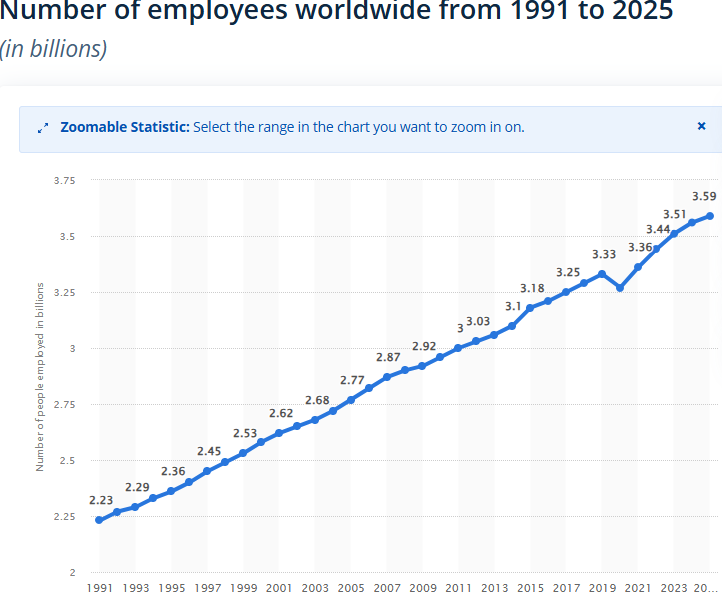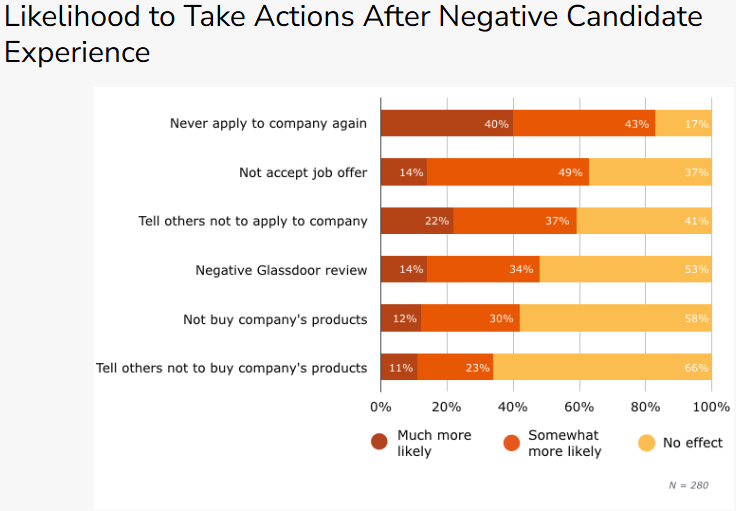Are you tired of being stuck in your career progression? Learn how to tailor your job search to your ideal career path. Tailoring your job search to your ideal career path is essential for landing a role that suits your skills and aligns with your long-term aspirations. Instead of a scattergun approach, focusing your search can streamline the process and increase your chances of success.
This strategy involves customising every aspect of your job hunt, from researching industries and roles to perfecting your resume and cover letter. Understanding how to tailor your job search is the first step toward achieving your career goals.
Defining your ideal career path can help you narrow down job opportunities that fit you. This approach saves time and energy, allowing you to focus on roles that align with your aspirations.
By doing so, you not only increase your chances of securing a job but also ensure that the position will contribute to your overall career satisfaction and growth. Here’s how to tailor your job search to your ideal career path.
Also Read:
Defining Your Ideal Career Path

Before diving into the job search process, it’s crucial to define what your ideal career path looks like clearly. This involves reflecting on your passions, strengths, and long-term goals. Ask yourself questions like, “What am I passionate about?” “What are my core skills?” and “Where do I see myself in five or ten years?”.
By answering these questions, you can identify the roles and industries that align with your future vision. Defining your career path helps you stay focused and motivated, even when the job search becomes challenging.
Once you clearly understand your ideal career path, you can tailor your job search accordingly. This means looking for opportunities that match your skill set and align with your long-term career goals. If you’re passionate about technology and problem-solving, consider a career in software development. By focusing on roles that align with your aspirations, you can make more informed decisions throughout your job search journey.
Also Read:
- How to Break into the Finance Industry as a Fresh Graduate
- How to Research Companies Before Applying
How to Research Industries and Roles That Align with Your Career Goals
In 2025, there were estimated to be approximately 3.6 billion people employed worldwide, compared to 2.23 billion people in 1991 – an increase of around 1.4 billion people. There was a noticeable fall in global employment between 2019 and 2020, when the number of employed people fell from due to the sudden economic shock caused by the COVID-19 pandemic.

Researching industries and roles is critical in tailoring your job search to your ideal career path. Start by identifying the sectors that interest you the most and align with your skills. Remember to use industry reports, company websites, and professional networks like LinkedIn to stay updated on trends and job opportunities.
By understanding the landscape of your desired industry, you can target roles that match your current expertise and offer room for growth in line with your career aspirations.
Another effective way to research industries and roles is to connect with professionals already working in your desired field. Informational interviews and networking events can provide invaluable insights into what working in a particular role or industry is like.
These conversations can help you identify the qualifications and experiences most employers value, enabling you to tailor your job search effectively. Having a clear picture of what’s required helps align your application materials with hiring managers’ expectations.
Also Read:
Customising Your Resume and Cover Letter for Specific Job Applications
Customising your resume and cover letter is essential in tailoring your job search to your ideal career path. Each job application should be treated as unique, with your resume and cover letter specifically tailored to the role’s requirements.
Start by thoroughly reading the job description and highlighting the key skills and experiences the employer is seeking. Then, ensure your resume demonstrates how your background aligns with these needs. Use specific examples from your work history to showcase your achievements and the value you can bring to the company.
Your cover letter should complement your resume by telling a compelling story about why you’re the perfect fit for the role. When writing a cover letter, address it to the hiring manager if possible and mention specific job posting details.
Explain how your career goals align with the company’s mission and how your skills make you an ideal candidate. Customising your resume and cover letter increases your chances of getting noticed and shows your genuine interest in the role and organisation.
Building a Professional Network Aligned with Your Career Aspirations
Matt Youngquist, the president of Career Horizons says that up to 70% of all jobs are not published on publicly available job search sites, and research has long shown that anywhere from half to upwards of 80% of jobs are filled through networking.
Building a professional network that aligns with your career aspirations is a powerful way to tailor your job search to your ideal career path. Your network can provide valuable insights, advice, and potential job opportunities you might not find through traditional job search methods.
Start by connecting with industry professionals, joining relevant online groups, and attending networking events where you can meet people who share your career interests. Engaging regularly with your network can keep you updated on industry trends and job openings aligned with your goals.
To maximise the benefits of networking, focus on building genuine relationships rather than just collecting contacts. Offer to help others in your network when you can, whether by sharing information, providing introductions, or offering your expertise.
Reciprocity can lead to better connections and make others think of you when opportunities arise. Additionally, don’t hesitate to contact your network for advice or support during your job search. By surrounding yourself with professionals who share your career aspirations, you’ll be better positioned to find and secure roles that perfectly fit your career path.
Tips for Finding Roles That Match Your Career Path
- Utilise Job Search Engines and Career Websites: Job search engines and career websites help you filter job listings by industry, job title, experience level, and location. You can focus on positions that align with your career path. Setting up job alerts will keep you updated on new opportunities, ensuring you don’t miss roles that fit your aspirations.
- Leverage Your Professional Network: Many job opportunities are never advertised publicly and are filled through networking. You can learn about these hidden opportunities by tapping into your professional network. Letting your contacts know you’re looking for a new role can open doors to positions that align with your career goals. Networking can also provide insider insights into companies and roles.
- Work with a Recruiter: Recruiters, especially those specialising in your industry, can be invaluable in finding roles that match your career path. They have access to many job openings and can advocate for you with potential employers. A recruiter can also guide you in tailoring your job search to your ideal career path.
- Research Companies that Align with Your Career Goals Instead of waiting for job postings proactively researching companies that align with your career goals can help you identify potential employers. Look for organisations whose missions, values, and work culture resonate with your career path. Building relationships with these companies can lead to future opportunities even if they don’t have current openings.
- Customise Your Job Applications: Tailoring your resume and cover letter for each job application increases your chances of landing roles that match your career path. Highlight the skills and experiences that are most relevant to the job and explain how they align with your career goals. Customized applications demonstrate your commitment to the role and your thoughtful consideration of its fit with your long-term career plans.
Interview Preparation: Aligning Your Responses with Your Career Goals

Interview preparation is crucial in tailoring your job search to your ideal career path. When preparing for interviews, align your responses with your long-term career goals. Review the job description and consider how your experiences and skills align with the role.
Think about how this position fits into your overall career trajectory and be ready to articulate this in your interview. Employers appreciate candidates with a clear vision for their future and can explain how the role they’re applying for supports that vision.
During the interview, use your responses to demonstrate how the role aligns with your career goals. For example, if you’re asked about your strengths, focus on those most relevant to the job and explain how they will help you succeed. When discussing your career aspirations, emphasise how the position aligns with your long-term objectives.
This shows the interviewer that you’re not only qualified for the job but also genuinely interested in contributing to the company’s success over the long term. Aligning interview responses with your career goals can boost your chances of landing a job that aligns with your ideal career path.
How to Evaluate Job Offers Based on Your Career Objectives
Report says that 63% of job seekers will reject a job offer due to a bad candidate experience. Evaluating job offers is crucial in ensuring that your next move aligns with your long-term career goals. It’s not just about salary or benefits—consider how each offer fits into your broader career objectives. By thoroughly assessing each opportunity, you can make informed decisions that will help you stay on the right path toward your ideal career.

Factors to Consider When Evaluating Job Offers
- Role Alignment: Ensure the job responsibilities align with your skills and career goals. The role should offer opportunities for growth in your desired direction.
- Company Culture: Consider if the company’s values, work environment, and management style match your preferences. A good cultural fit can significantly impact your job satisfaction.
- Growth Opportunities: Seek roles with clear paths for advancement, professional development programs, and opportunities to learn new skills.
- Compensation and Benefits: While salary is important, consider benefits like health insurance, retirement plans, and work-life balance. These can greatly impact your overall satisfaction.
- Location and Commute: Evaluate the job’s location and the commute involved. Consider how it fits your personal life and if remote work options are available.
- Job Stability: Research the company’s financial health and market position. Job stability is crucial for long-term career planning.
- Work-Life Balance: Assess the company’s approach to work-life balance. This includes flexible working hours, remote work options, and vacation policies. These factors will help you determine whether a job offer is a step forward in your career or simply a detour.
Balancing Flexibility and Focus in Your Job Search Strategy
Balancing flexibility and focus in your job search is key to finding the right role. Focus is essential for targeting positions that align with your long-term goals. Still, flexibility allows you to adapt to changing circumstances and explore roles you may not have initially considered.
Start by clearly defining your career objectives and using them to guide your job search. This will help you stay focused on roles that fit your skills and aspirations well.
However, it’s also important to remain flexible in your approach. Sometimes, roles that don’t perfectly align with your initial goals can still offer valuable experiences and opportunities for growth. Being open to these possibilities can lead to unexpected career advancements.
For example, a position in a related industry or a slightly different role might still provide the experience and skills you need to progress in your career. Balancing focus and flexibility in your job search is key to staying aligned with your career path while remaining open to new opportunities.
See Also:
Conclusion
Tailoring your job search to align with your ideal career path is more than just a process—it’s an investment in your future. Define career objectives, research industries, customise your resume, build a professional network, and prepare for interviews to position yourself for success.
Remember, your job search should be as focused as your career ambitions. It’s important to stay flexible and open to unexpected opportunities that can contribute to your growth. Evaluating job offers with your career objectives in mind ensures that you’re not just taking a job but making a decision that aligns with your future.
As you navigate the complexities of finding the right role, let ApplyBuddy be your trusted companion. ApplyBuddy simplifies your job search by providing tailored job recommendations, resume-building tools, and interview preparation resources, all designed to help you land the perfect job.
Whether you’re just starting your career or looking to make a strategic move, ApplyBuddy is here to help you every step of the way. Start your journey with ApplyBuddy today, and take the first step toward securing the career you’ve always dreamed of.

FAQs
How do I stay motivated during a targeted job search?
Stay motivated by setting small, achievable goals and celebrating each milestone. Keep your end goal in mind, take breaks to recharge, and surround yourself with a supportive network.
What if my ideal career path requires additional education or skills?
View it as an opportunity to grow. Research the necessary qualifications, take online courses, and gain experience through internships or volunteering to build your skills while you learn.
How can I identify transferable skills that align with my career goals?
Reflect on past experiences to identify skills like communication or problem-solving. Highlight these in your resume and cover letter, showing how they apply to your target roles.
Should I apply for jobs outside my ideal career path if I struggle to find opportunities?
It’s okay to consider related roles that offer relevant experience. Choose opportunities that align with your long-term goals and offer growth potential, even if they aren’t a perfect match.
